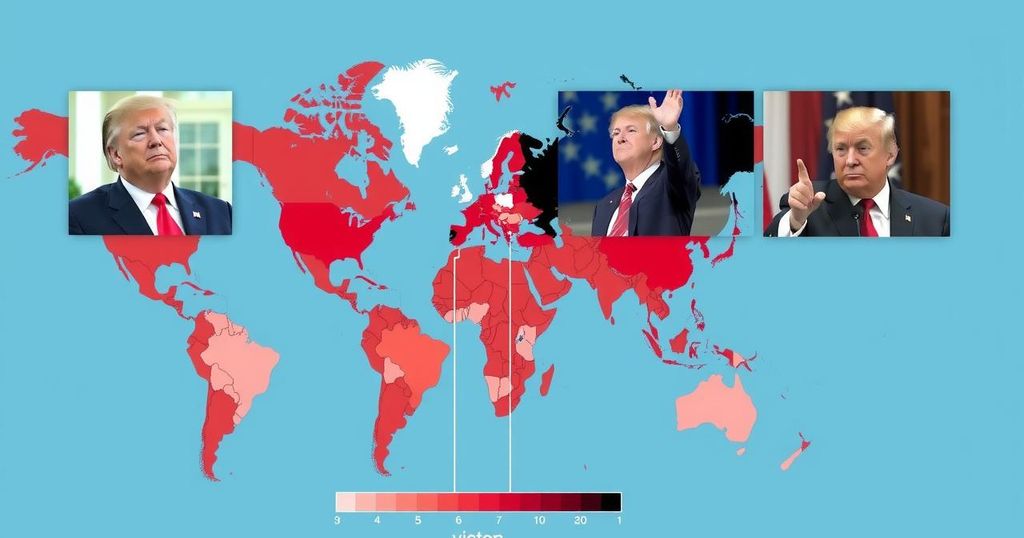Elections in 2024 have led to widespread rejection of incumbents across 70 countries, reflecting significant public discontent with governments. From South Africa to the United Kingdom, established parties faced defeat amid rising voter frustration fueled by economic issues and social unrest. The trend points to a growing instability in democracies, with increasing support for far-right movements and populist candidates.
In 2024, the electoral scene across the globe has witnessed significant upheaval, with incumbents facing overwhelming rejection in numerous countries. Approximately 70 nations, accounting for half of the global population, held elections, leading to a pervasive anti-incumbent sentiment fueled by economic struggles and social unrest. Countries such as South Africa, India, and the United Kingdom exemplified this trend, where long-standing governments were unseated, resulting in power shifts and the ascent of opposition parties. In light of these electoral events, numerous instances of instability, including protests and disruptions in governance, have also emerged, indicating a turbulent political landscape. Global dissatisfaction with democratic processes has risen, leading to increased support for far-right and populist movements as citizens express their frustrations amid perceived failures in governance. Ultimately, the implications of these elections point towards a complex and uncertain future for democracy worldwide.
The year 2024 has been characterized by significant political turbulence marked by widespread elections across major democracies. The disruptions caused by the COVID-19 pandemic have left lingering effects on the electorate, contributing to widespread discontent with existing governments. Rising inflation, social inequality, and geopolitical conflicts have further fueled public dissatisfaction, leading to a series of electoral upsets. As a result, established political parties have faced challenges, frequently succumbing to pressures from newly emerging populist movements and opposition parties. The shift towards non-traditional candidates and the rise of far-right movements across various regions illustrate a growing trend of discontent towards traditional political structures. This backdrop of instability raises concerns regarding the future functioning of democracies, as voters exhibit frustration with current political leadership while expressing a strong desire for reforms that address their grievances.
The tumultuous electoral landscape of 2024 signals a decisive shift in global politics, with widespread anti-incumbent sentiment reshaping power dynamics in many nations. The rejections of long-established governments highlight a collective frustration with economic conditions and social policies. As voices supporting populism and far-right ideologies gain traction, the future of democratic stability remains uncertain. These electoral outcomes will likely prompt significant reflections and re-evaluations of political strategies in the years to come, particularly in response to the challenges facing global governance. The ongoing dissatisfaction with democratic institutions underscores the urgent need for reforms that align political realities with public expectations.
Original Source: www.clickondetroit.com






